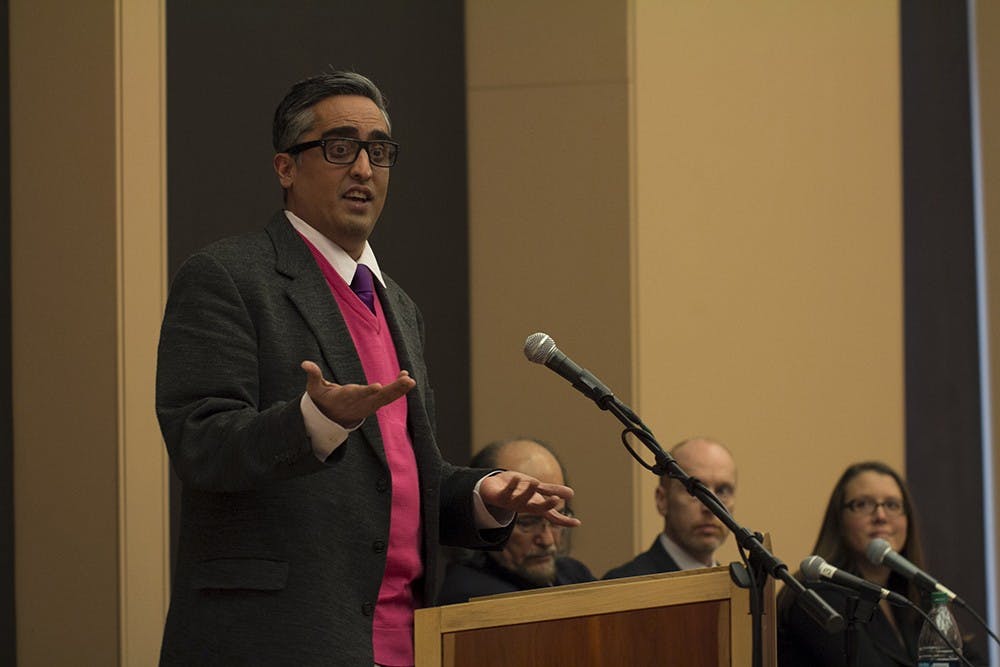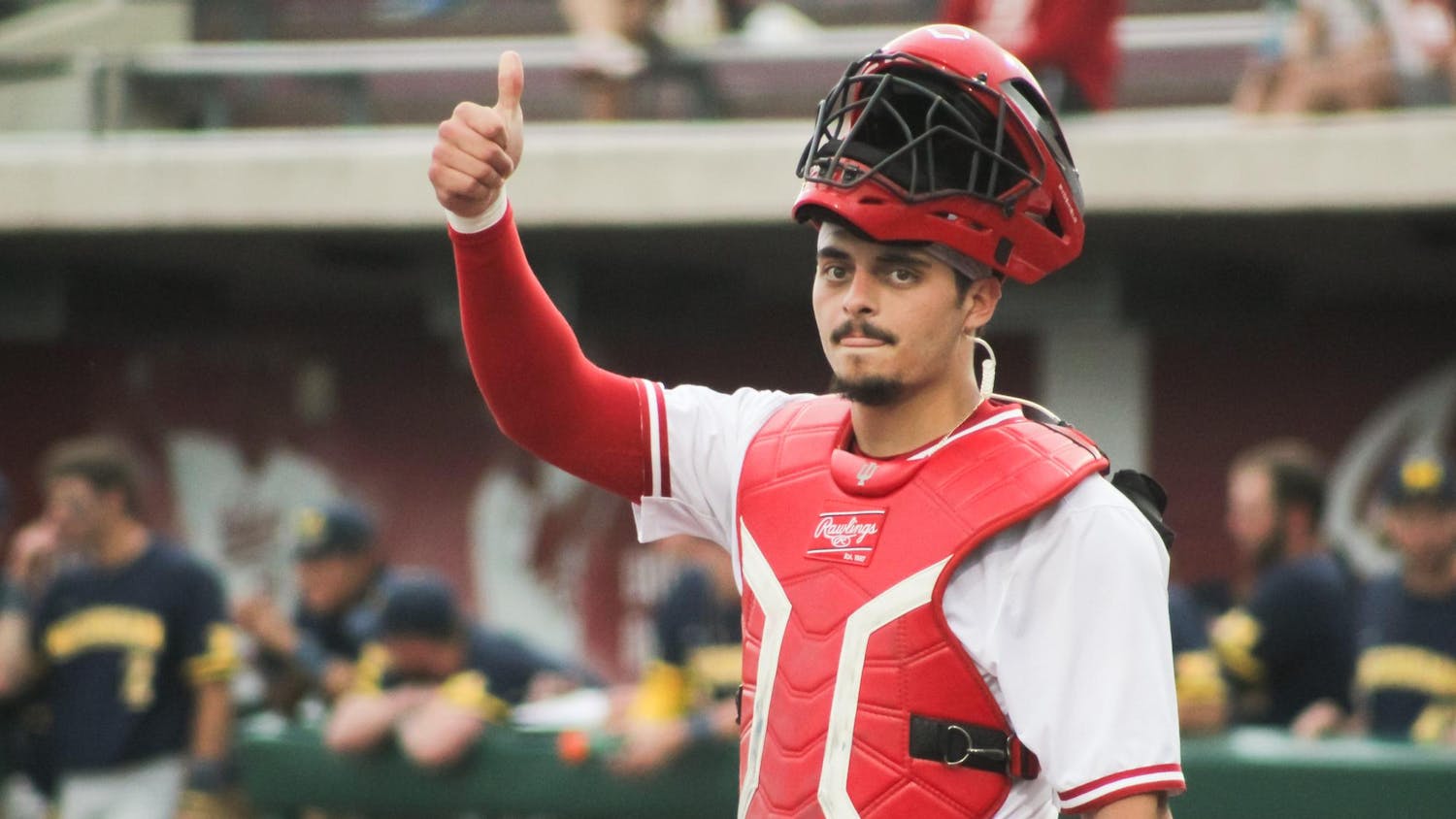Pennington had previously reported on other controversial topics such as abortion, gay and lesbian rights and HIV and AIDS prevention and has never gotten a more powerful backlash than she received when including Islam in a question.
In addition to Pennington, Arsalan Iftikhar, an international human rights lawyer and global media commentator; Nazif Shahrani, an IU professor of anthropology and Middle East studies; and Matthew Tully, a columnist from the Indianapolis Star, spoke on a panel on the complicated intersection of Islam, politics and the media.
The panelists were ?attempting to develop a conclusion on where to battle this problem and broke the situation into three pillars: education, government and the media.
The Center for the Study of Global Change under the IU School of Global and International Studies sponsored the panel. Hilary E. Kahn, director of the Center for the Study of Global Change and assistant dean for Strategic Collaborations within the school, gave opening remarks along with the dean of the school, Lee Feinstein.
“There can be no grander challenge of learning about the deaths of the artists and journalists in France in the past month,” Feinstein said.
The panelists examined this challenge via a range of different angles. Iftikhar started the panel by proposing a poll to the audience of about 100 people.
“How many people at some point in your life had heard the sentence, ‘Barack Obama is a Muslim?’” ?Iftikhar said.
The audience was unanimous in raising their hands in response. The next several minutes of the discussion consisted of showing media racial profiling of Muslim citizens within the post-9/11 world.
“We tend to speak about the post-9/11 world in an abstract term,” Iftikhar said. “These statements do not operate in a vacuum.”
The discussion continued about how the ignorance of Americans in relation to the Muslim community has skyrocketed and will continue to flourish if there isn’t a necessary discussion put into place. Testimonials regarding Colin Powell’s criticism against his fellow party members calling President Obama a Muslim and various Gallup polls showing how many citizens still see Muslims as a large threat as a people were used as examples in this debate.
“To refer to someone as an Arab or Muslim has become an American slur,” ?Iftikhar said.
Shahrani continued the discussion focusing on the hypocritical nature associated with this ongoing discrimination. He discussed how the threat of no hope of getting any better will only get worse when our world continues to grow more tightly knit.
Shahrani said he believes the production of the future and knowledge has been failed and things have not truly changed for the better.
“It’s not the media or the politicians alone, it’s the academics as well,” Shahrani said. “We have created the environment that has been presented to us.”
Tully has been a journalist for 23 years and said he believes all politics and civil rights are considered local issues. He said journalists struggle telling the full story of the community, ?including religion.
“Part of my job is to force others that have beliefs and make them open to change,” Tully said.
Tully is determined to make it a little harder to hate others and complicate things that mess with ?people’s ingrained biases.
To end the discussion, Pennington discussed the media’s overall role in swaying public opinion. She has recently been working on a Tumblr campaign focused on allowing the vibrant Muslim community to shine. Pennington believes media helps form a movement to a brighter future, although this is a movement moving extremely slow.
“Even when there is positive coverage about Muslims, it creates two binary parts,” Pennington said.
The panelists as a whole came to the conclusion that curriculum and education is the only way to break this downward spiral.
“You don’t make peace with our friends, we make peace with our enemies,” Iftikhar said. “Violence breeds violence.”






